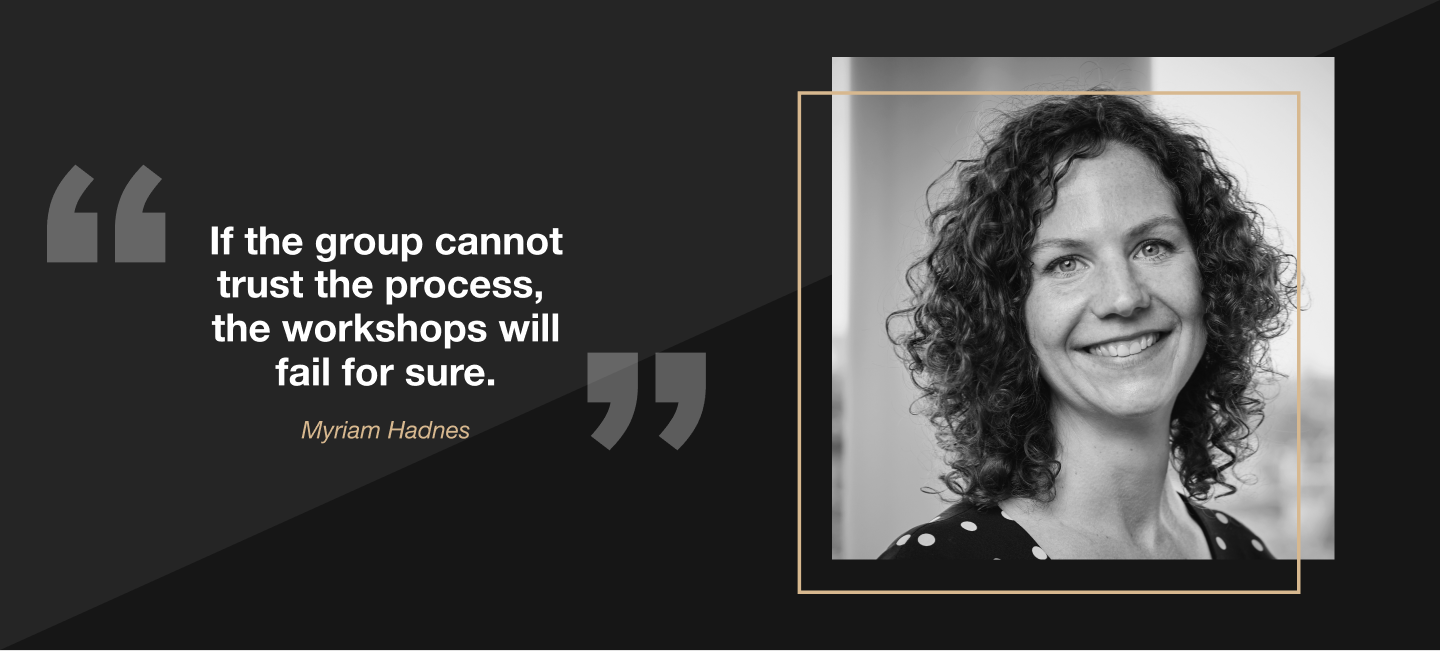Episode 018
July 3, 2019
018 – How to use scientific insights to design powerful workshops – with Myriam Hadnes

Sign up to download the free 1-page summary.
Intro
This is my first solo show and I speak about the science behind workshop design and facilitation. I share how I use evidence from behavioural economics to come up with ideas that help participants to experience meaningful progress during their working session.
Before founding idayz I had a career in higher education – as a researcher, lecturer and strategic advisor. From all these roles I learned about human behaviour and how to best facilitate their collaboration.
In the show, I share the rationale behind my workshop design and some of my favourite exercises. Some questions which I answer: How can we help participants to open up and engage despite hierarchical differences? How can we use the energy of nay-sayers for creative ideation and is courage one of the most important skills of a successful facilitator?
Don’t miss the part when I explain why I bring M&Ms to every meeting…
Don’t miss the next show: sign up to my newsletter and subscribe to the show through your podcast player.
Feeling inspired by the conversation in this episode? We can have our own – take a seat at my virtual table as part of a Mastermind Group.
A huge thank you must go to SessionLab, the sponsor of Workshops Work. Claim your free two months of SessionLab Pro now – this deal is exclusive to Workshops Work listeners!
Questions and Answers
1:59 If I was a hashtag, what would it be?
3:30 Why do I call myself a “behavioural economist” and what does that mean?
6:33 What’s my story? How did I get from a career in higher education to become a facilitator?
10:59 Why did I call my business idayz?
15:21 What have I learned from my previous roles in workshop design and facilitation?
22:13 How do I use insights from behavioural economics to design workshops?
29:22 What’s my favourite exercise and how do I use behavioural insights to design exercises?
30:55 Why do I bring M&Ms to every meeting and workshop?
32:54 What are the most powerful check-in exercises I use and why do they work from a behavioural perspective?
41:45 Why do I brainstorm failures instead of successes?
43:00 How do I help participants to cluster their ideas after ideation?
45:41 Why do workshops fail?
46:26 What shall my listener who missed the entire show remember?
Links
Daniel Kahnemann: “Thinking fast and slow”
Vipassana silent meditation retreat
Pat Flynn’s concept of “unfair advantage”
My blog post on check-in exercises
Teresa Amabile: The progress principle
Dan Ariely’s Lego experiment
Our sponsor Session Lab
